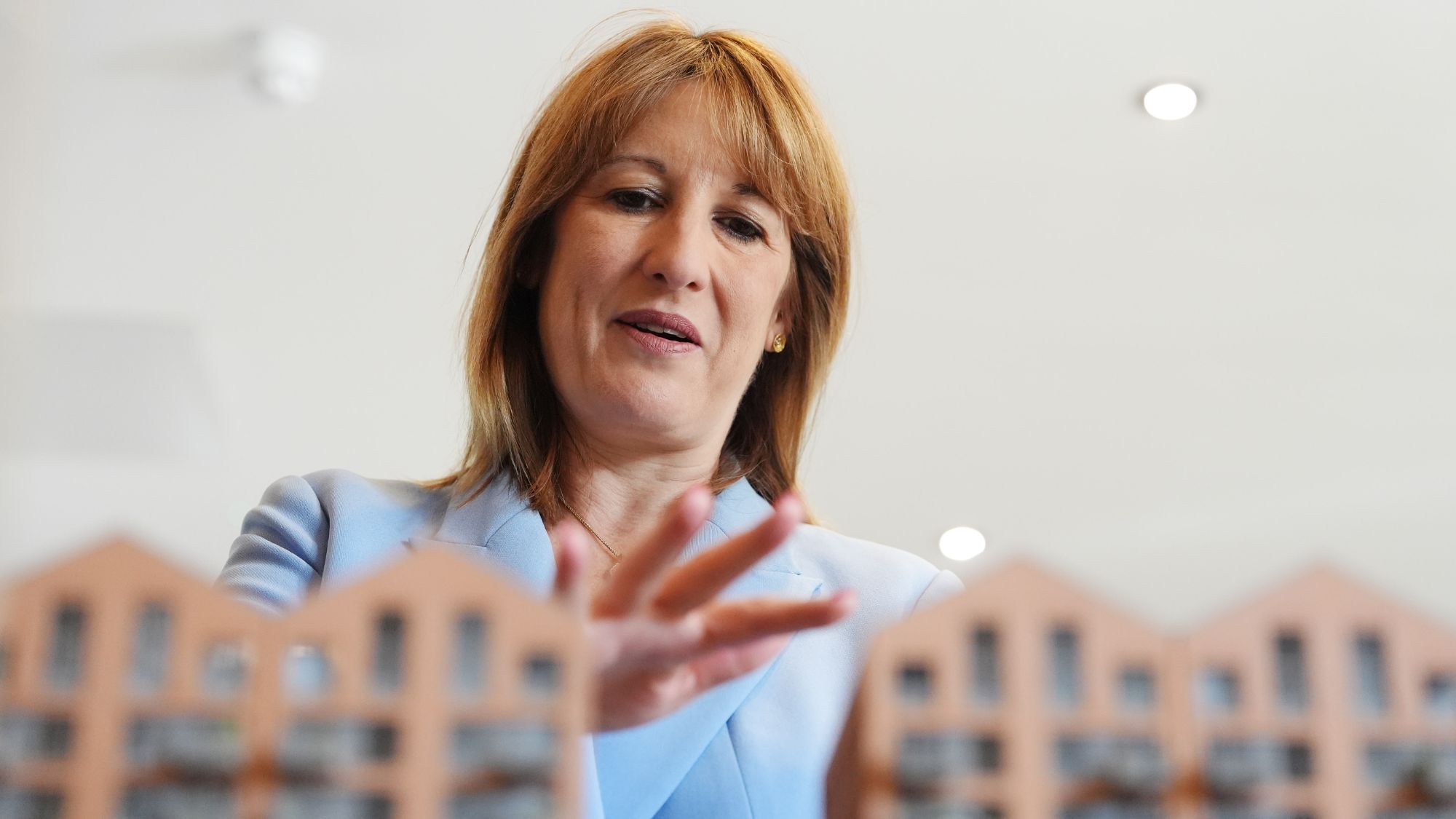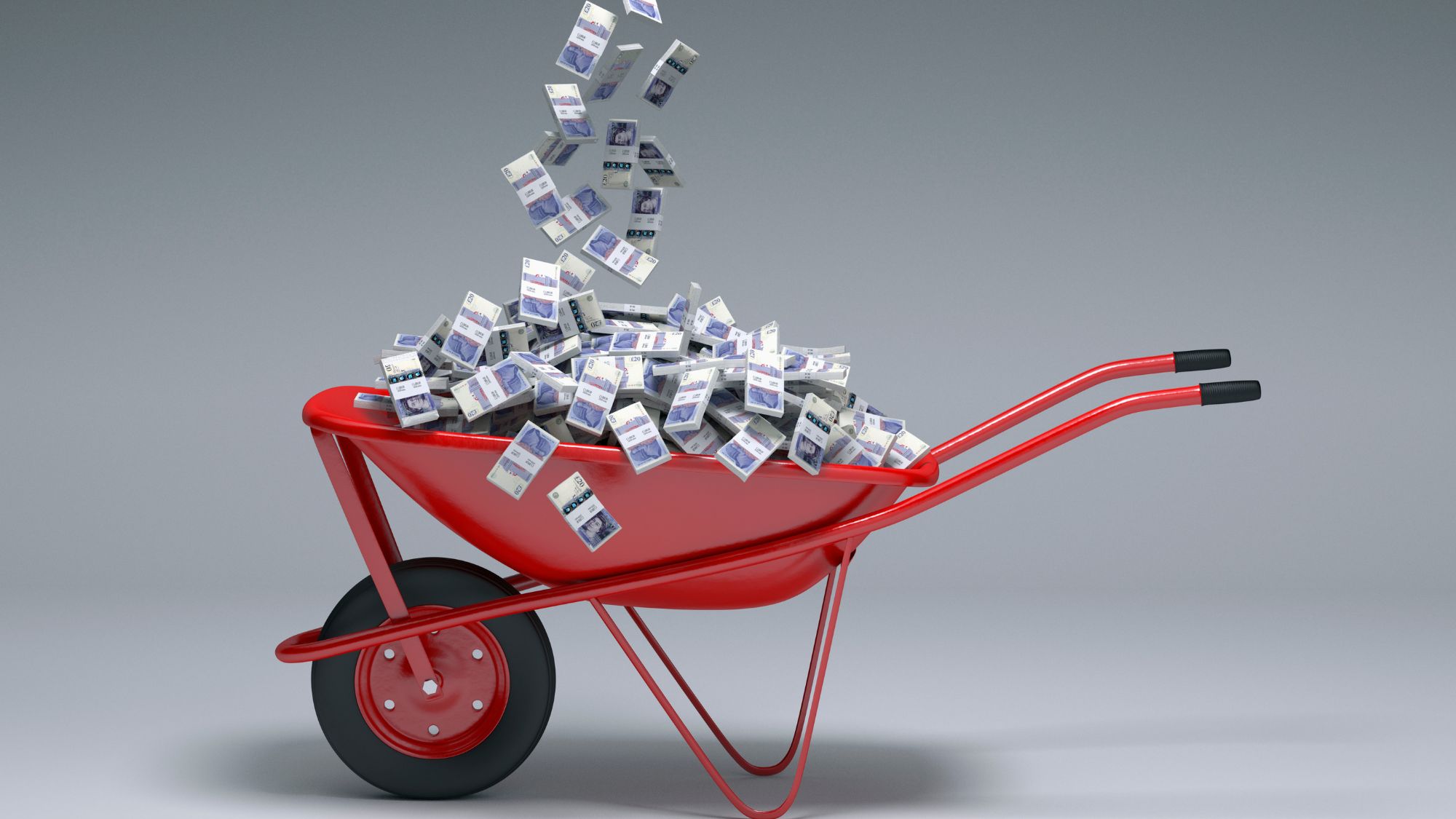Will the Budget kill off entrepreneurship?
James Dyson warns that fiscal changes could harm small businesses

A free daily email with the biggest news stories of the day – and the best features from TheWeek.com
You are now subscribed
Your newsletter sign-up was successful
Rachel Reeves has been warned that she is putting small businesses at risk following her Budget tax changes.
The chancellor unveiled a range of tax hikes and allowance tweaks during her first fiscal statement last week. Senior business leader James Dyson has said her plans to restrict inheritance tax reliefs on farms and family businesses "will be the death of entrepreneurship".
He said in The Times that Reeves is "killing off established family businesses, and any incentive to start new ones" after she "tightened inheritance tax relief" on business property sales above £1 million and introduced a 20% levy on farms that are passed on.
The Week
Escape your echo chamber. Get the facts behind the news, plus analysis from multiple perspectives.

Sign up for The Week's Free Newsletters
From our morning news briefing to a weekly Good News Newsletter, get the best of The Week delivered directly to your inbox.
From our morning news briefing to a weekly Good News Newsletter, get the best of The Week delivered directly to your inbox.
Other tax rises include a rise in capital gains tax from 10% to 18% for basic rate taxpayers and 20% to 24% for higher earners, as well as a national insurance hike for employers and a higher national minimum wage.
Higher taxes for family businesses
The inheritance tax changes in the Budget will raise £520 million for the Treasury, according to the Office for Budget Responsibility (OBR). But other British entrepreneurs have joined Dyson in criticising the changes.
Lobby group Family Business UK said tens of thousands of family-run businesses and farms will be ruined by this change due to lower levels of inheritance tax relief. Changes that were "a betrayal" that would result in businesses "being closed, sold and jobs lost across the country".
Minette Batters, former president of the National Farmers' Union, wrote in the Mail on Sunday: "The changes will destroy communities. It is not good enough to say that farmers could sell a few fields in order to pay the bill. Farms need to be a certain size in order to be viable".
A free daily email with the biggest news stories of the day – and the best features from TheWeek.com
Higher wage bills
The government also announced that the national living wage would increase by 6.7% from April 2025 to £12.21 per hour. Employer national insurance will rise by 1.2% to 15% from April 2025, while the threshold at which employers start paying NI on each employee’s salary will drop from £9,100 to £5,000.
The Treasury said this would raise £25 billion annually for the government. It is an "unwelcome cost" for many businesses, said Raconteur, and could have a "knock-on effect" if employers reduce pay rises or cut back on hiring. And the employment allowance – a relief on a businesses national insurance bill – will rise to £10,500.
But the OBR forecasts that 60% of the costs from the national insurance increase will be passed on to staff and consumers.
Lack of incentives for entrepreneurs?
The Budget will "do nothing" to encourage people to take the "first step in creating their own ventures", said Andrew Barclay in The Telegraph. While higher capital gains tax is unlikely to entice investors to "risk their money to fund new ideas".
But the Institute for Government warned it is "too simple" to divide the country into blocs of businesses and workers as "their interests ultimately merge" and higher near-term growth forecast by the OBR will ultimately "impact business through higher revenues".
Marc Shoffman is an NCTJ-qualified award-winning freelance journalist, specialising in business, property and personal finance. He has a BA in multimedia journalism from Bournemouth University and a master’s in financial journalism from City University, London. His career began at FT Business trade publication Financial Adviser, during the 2008 banking crash. In 2013, he moved to MailOnline’s personal finance section This is Money, where he covered topics ranging from mortgages and pensions to investments and even a bit of Bitcoin. Since going freelance in 2016, his work has appeared in MoneyWeek, The Times, The Mail on Sunday and on the i news site.
-
 What to know before filing your own taxes for the first time
What to know before filing your own taxes for the first timethe explainer Tackle this financial milestone with confidence
-
 The biggest box office flops of the 21st century
The biggest box office flops of the 21st centuryin depth Unnecessary remakes and turgid, expensive CGI-fests highlight this list of these most notorious box-office losers
-
 The 10 most infamous abductions in modern history
The 10 most infamous abductions in modern historyin depth The taking of Savannah Guthrie’s mother, Nancy, is the latest in a long string of high-profile kidnappings
-
 What new cryptocurrency regulations mean for investors
What new cryptocurrency regulations mean for investorsThe Explainer The Treasury and the Financial Conduct Authority aim to make the UK a more attractive and safer place for crypto assets
-
 How your household budget could look in 2026
How your household budget could look in 2026The Explainer The government is trying to balance the nation’s books but energy bills and the cost of food could impact your finances
-
 How the clock change could impact your finances
How the clock change could impact your financesThe Explainer The winter months can be more expensive but there are ways to keep your costs down
-
 Six actions to protect your finances before the Autumn Budget
Six actions to protect your finances before the Autumn BudgetIn Depth Reforms to property taxes, pensions and inheritance tax may be on the agenda for the 2025 Autumn Budget. Here is how you can prepare
-
 What the 2025 Autumn Budget could mean for your wallet
What the 2025 Autumn Budget could mean for your walletThe Explainer Chancellor Rachel Reeves will reveal her latest plan to balance the nation’s finances in November
-
 How a UK wealth tax could work
How a UK wealth tax could workThe Explainer A levy could be on the agenda as Rachel Reeves attempts to get the nation's finances back on track
-
 3 tips to save for a cruise this year
3 tips to save for a cruise this yearThe Explainer The convenience of a cruise doesn't necessarily come cheap without some strategic planning
-
 Planning a trip? These are 3 budget-breaking mistakes to avoid.
Planning a trip? These are 3 budget-breaking mistakes to avoid.The Explainer Don't accidentally inflate your travel costs